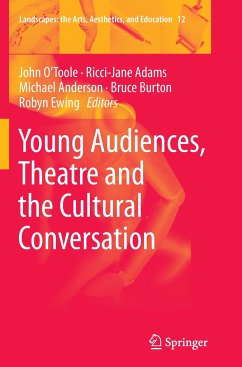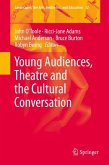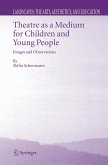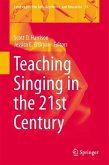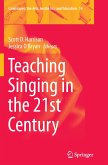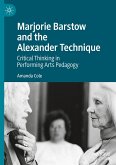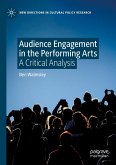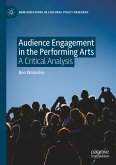This volume offers rare insights into the connection between young audiences and the performing arts. Based on studies of adolescent and post-adolescent audiences, ages 14 to 25, the book examines to what extent they are part of our society's cultural conversation. It studies how these young people read and understand theatrical performance. It looks at what the educational components in their theatre literacy are, and what they make of the whole social event of theatre. It studies their views on the relationship between what they themselves decide and what others decide for them. The book uses qualitative and quantitative data collected in a six-year study carried out in the three largest Australian States, thirteen major performing arts companies, including the Sydney Opera House, three state theatre companies and three funding organisations. The book's perspectives are derived from world-wide literature and company practices and its significance and ramifications are international.The book is written to be engaging and accessible to theatre professionals and lay readers interested in theatre, as well as scholars and researchers. "This extraordinary book thoroughly explains why young people (ages 14-25+) do and do not attend theatre into adulthood by delineating how three inter-linked factors (literacy, confidence, and etiquette) influence their decisions. Given that theatre happens inside spectators' minds, the authors balance the theatre equation by focusing upon young spectators and thereby dispel numerous beliefs held by theatre artists and educators. Each clearly written chapter engages readers with astute insights and compelling examples of pertinent responses from young people, teachers, and theatre professionals. To stem the tide of decreasing theatre attendance, this highly useful book offers pragmatic strategies for artistic, educational, and marketing directors, as well as national theatre organizations and arts councils around the world. I have no doubt that its brilliantly conceived research, conducted across multiple contexts in Australia, will make a significant and original contribution to the profession of theatre on an international scale." Jeanne Klein, University of Kansas, USA "Young Audiences, Theatre and the Cultural Conversation is a compelling and comprehensive study on attitudes and habits of youth theatre audiences by leading international scholars in the field. This benchmark study offers unique insights by and for theatre makers and administrators, theatre educators and researchers, schools, parents, teachers, students, audience members of all ages. A key strength within the book centers on the emphasis of the participant voices, particularly the voices of the youth. Youth voices, along with those of teachers and theatre artists, position the extensive field research front and center." George Belliveau, The University of British Columbia, Canada
Bitte wählen Sie Ihr Anliegen aus.
Rechnungen
Retourenschein anfordern
Bestellstatus
Storno

